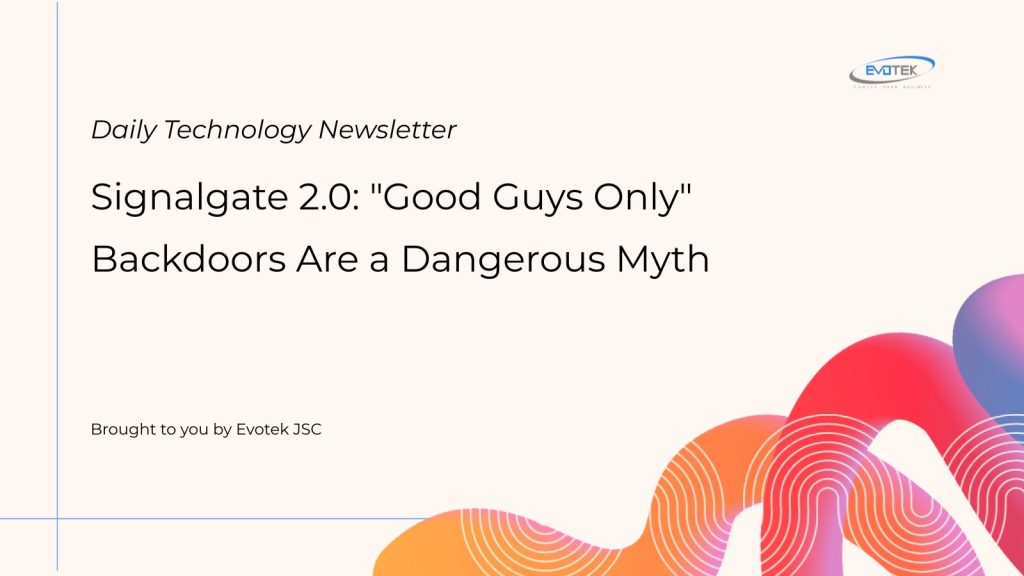A recent incident dubbed “Signalgate 2.0” highlights the inherent risks of creating backdoors in encrypted communication apps. The case involved US officials using a modified version of the Signal app with unencrypted archiving features, ultimately leading to a security breach where sensitive data fell into the wrong hands.
The “Signalgate 2.0” Debacle: A Broken Promise
The modified Signal app, developed by TeleMessage and later acquired by Smarsh, was intended to meet government record-keeping requirements. However, this “unofficial fork” compromised Signal’s core promise of end-to-end encryption by archiving chats in an unencrypted format.
This central archiving feature introduced a significant vulnerability. Poorly secured cloud storage and hard-coded credentials allowed malicious actors to access the archived chats, leading to the shutdown of TeleMessage. This incident serves as a stark warning against weakening encryption for any reason.
The Perilous Narrative of “Lawful Access”
Law enforcement and intelligence agencies have long advocated for “lawful access” to encrypted communications, arguing that backdoors for “trusted government actors” would enhance security. However, “Signalgate 2.0” demonstrates the fallacy of this argument. There’s no such thing as a secure backdoor: if a vulnerability exists, it will inevitably be exploited.
Weakening encryption for anyone weakens it for everyone. The question isn’t whether a backdoor can be hacked, but when it will be hacked. If a master key is created, it’s only a matter of time before it’s stolen.
High-Profile Targets, Low Security Standards
What makes “Signalgate 2.0” particularly alarming is that the compromised app was used by high-ranking officials in sensitive government positions, including the U.S. Customs and Border Protection, the U.S. Department of Homeland Security, the U.S. Department of the Treasury, and a presidential advisor. If security couldn’t be guaranteed for these high-profile users, how can anyone claim that a secure encrypted communication tool with backdoor access is possible?
Encryption: A Necessity, Not a Luxury
Undermining encryption jeopardizes the privacy and security of journalists, dissidents, whistleblowers, businesses, and everyday citizens. Once a backdoor is created, it becomes a target for criminals and hostile foreign powers.
The Solution: Strong Encryption and Targeted Law Enforcement
“Signalgate 2.0” proves that encryption must not be compromised. Instead of demanding backdoors, governments should invest in targeted tools and law enforcement agencies to combat cybercrime effectively. It’s a myth that backdoor access is needed to achieve greater security.
Let “Signalgate 2.0” serve as a final warning against the dangerous myth of “good guys only” backdoors. Undermining encryption makes the world less safe for everyone.

 日本語
日本語 한국어
한국어 Tiếng Việt
Tiếng Việt 简体中文
简体中文